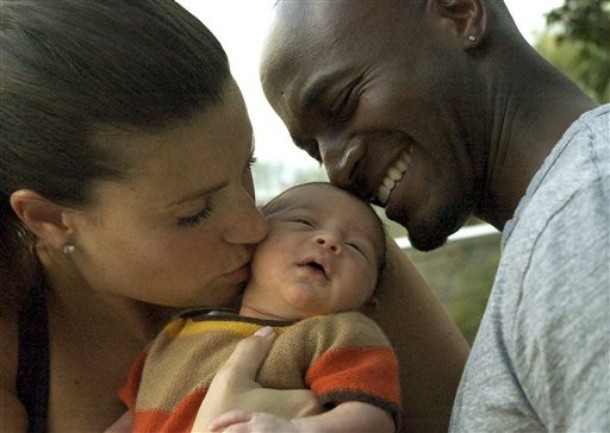
Saturday, March 25
“But Moses fled from Pharaoh. He settled in the land of Midian, and sat down by a well. The priest of Midian had seven daughters. They came to draw water, and filled the troughs to water their father’s flock. But some shepherds came and drove them away. Moses got up and came to their defense and watered their flock. When they returned to their father Reuel, he said, ‘How is it that you have come back so soon today?’ They said, ‘An Egyptian helped us against the shepherds; he even drew water for us and watered the flock.’ He said to his daughters, ‘Where is he? Why did you leave the man? Invite him to break bread.’ Moses agreed to stay with the man, and he gave Moses his daughter Zipporah in marriage. She bore a son, and he named him Gershom; for he said, ‘I have been an alien residing in a foreign land’” (Exodus 2:15-22).
Curiously, those most obsessed with defining race precisely are those who are persuaded of the superiority of their own race—and the inferiority of others. For example, our Constitution once defined the inferiority of African slaves with mathematical precision: when counting population for the purpose of determining Presidential electors, a slave counted as three-fifths of a person. Mississippi’s anti-miscegenation laws once defined a person as “African” if she or he had at least one-eighth African blood. By contrast, African American theologian Brian Bantum has argued that race is “a tragic illusion,” born of the Western need to assert superiority by setting up a false dichotomy of “white” against “black”—a lie exposed early on by mixed-race children, living “in between categories of colonizer and colonized, human and nonhuman, slave and free” (Brian Bantum, Redeeming Mulatto: A Theology of Race and Christian Hybridity [Waco: Baylor University, 2010]; cited in a review by Edward P. Antonio in Christian Century 129 [February 8, 2012]: 38).
Moses’ story reveals what experience in our own multi-racial society is increasingly proving to be true: that Bantum is right. While Moses was born a Hebrew, he grew up as an Egyptian, the adopted son of Pharaoh’s daughter. No wonder, when Moses helps Reuel’s daughters water their flock, they report to their father, “An Egyptian (!) helped us.” Moses marries one of those young women, named Zipporah, and settles down to live among Reuel’s people, as a Midianite. But he knows he is not truly one of them, either, as the name he gives his son makes clear: Gershom, here understood to mean “name of a ger”—that is, a foreigner, or sojourner (see the devotions for week six). There was nothing wrong with Moses being Midianite, or Egyptian for that matter—and he could easily have been defined, and defined himself, as either. But his identification with the Hebrews oppressed in Egypt will not let him go—and neither will the Lord.
Prayer: Free us, God, from our obsession with telling others who they are. Remind us that you have spoken our names, from before creation, and give us grace to accept and affirm one another. In Jesus’ holy name, Amen.
I am a old Black Man born in Jim Crow South. When I was a Boy the State moved road close to our well making well go dry because State thought Negroes shouldn’t own land! Also as a Boy Jim Crow put me in White School to prove Negroes were inferior to Whites. Working for State I was shot at while driving home from work bullet missed my head by only inches! Also working for State a snake was put in cab of my work truck. Snake crawled from under dash started towards my left hand on steering wheel then stretched out onto drivers door armrest while I was driving on Creedmoor Road in Raleigh NC and I couldn’t pull over right away! To be Black is too be hated!
God bless you, Mr. Harris. I am so sorry for the pain that you have suffered. I pray that we can work toward the justice God intends for all of us.